Our proven approach to whole-child education.
Igniting Minds
Description
Engaging students in participatory experiences that foster curiosity, problem-solving, and collaborative skills, all within a framework guided by Christian principles.
Outcomes
Graduates who are intellectually curious, capable of critical thinking, and possess strong collaborative skills, ready to innovate and lead in their fields.
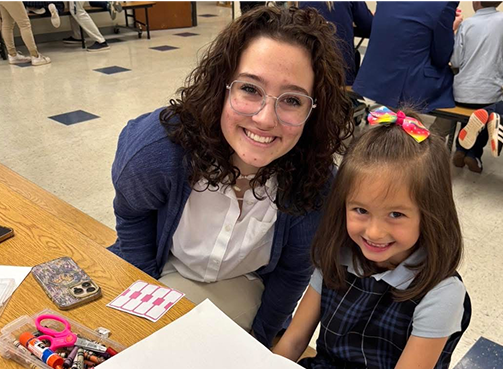
Preschool
Approaches
Introduce interactive learning activities such as author studies, puzzles and simple problem-solving games to encourage curiosity and foundational critical thinking; use play-based learning to explore basic concepts in math, science, and language;
Experiences
Introduce teamwork and foundational critical thinking by participating in group tasks like building with blocks and recognizing patterns in an author’s books; explore cause-and-effect through hands-on experiments such as planting seeds or observing simple machines; experience active learning through Prairie Day, STEAM activities, cooking, and field trips to Hatcher Garden and the farm.
Enrichment Opportunities
Introduce sensory and motor skill development through activities that encourage problem-solving, such as manipulatives, sensory bins, and early STEM kits; use music and drama to creatively explore movement—soaring like a bird, flapping like a bat, or re-enacting the Christmas story; illustrate similarities and differences in animals through videos and Venn diagrams.
Progress
Students demonstrate early curiosity and the ability to work collaboratively on simple tasks.
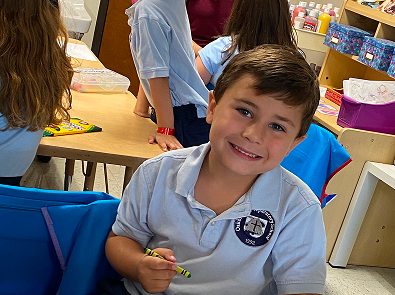
Kindergarten
Approaches
Expand structured problem-solving activities, such as basic science experiments and story-based puzzles; foster inquiry through teacher-guided “why” and “how” discussions; Active learning and hands-on activities that encourage collaboration, problem solving and inquiry based discoveries.
Experiences
Explore collaborative learning through class-wide experiments (e.g., growing plants or exploring magnetism); engage in projects that integrate creative storytelling and logical sequencing; travel back in time through immersive experiences like Prairie Day, Snow Week, and hands-on service projects.
Enrichment Opportunities
Explore nature through guided field trips to the pumpkin patch and a local pond, fostering observation and curiosity; extend learning through drama by acting out fairy tales and participating in Christmas programs that develop creativity and expression.
Progress
Students begin to ask meaningful questions and demonstrate initial teamwork and critical thinking skills.
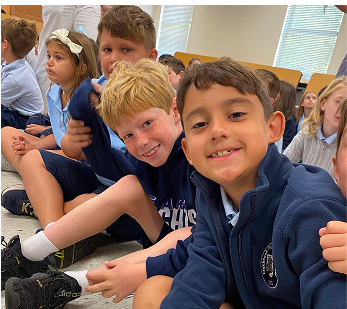
Elementary (1-4)
Approaches
Strengthen experience-based learning with a focus on interdisciplinary connections between science, social studies and Language Arts; Rigorous math curriculum icluding STEM activities; use hand-on lessons to promote higher-level questioning and analysis.
Experiences
Engage in interactive class projects such as Greek Agora, Immigration Day, Dissections, STEAM Days, and the Medieval Festival; deepen understanding of local history and ecosystems through field trips and hands-on learning experiences.
Enrichment Opportunities
Engage in immersive, hands-on projects like the Wax Museum, re-enacting the caste system, and Hospital Room Transformation, which integrate science, history, and art into interactive learning experiences; participate in school-wide service projects, summer camps, and seasonal events that promote community involvement and personal growth.
Progress
Students develop a robust foundation in collaborative problem-solving and critical thinking across subjects.
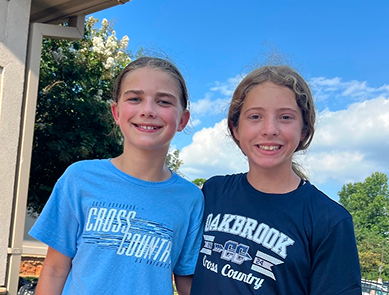
Middle School (5-8)
Approaches
Advance experiential learning to include interdisciplinary research, science explorations and real world problem-solving exercises; Participate in inquiry units, choice boards, socratic seminars, and presentations; focus on collaborative activities like debate, mock trials, and business simulations, through a Biblical Worldview.
Experiences
Strengthen teamwork and problem-solving skills through collaborative competitions like the Missions Bazaar, Science Olympiad, Dance Competitions, and Battle of the Books; create detailed projects, such as designing experiments or building models for real-world applications.
Enrichment Opportunities
Strengthen skills through specialized electives such as coding, graphic design, or logic and gaming strategy; take part in clubs like Chess Club, Girls’ Bible Study, and others that support student interests and leadership; apply learning in real-world contexts through field trips that connect classroom knowledge to practical experiences.
Progress
Students exhibit enhanced critical thinking and collaborative abilities, prepared for higher-order intellectual challenges.
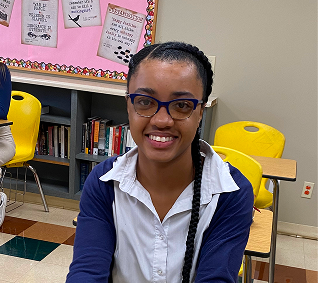
High School (9-12)
Approaches
Excel in project-based and research-based learning that encourages creativity and critical thinking, including independent capstone projects; foster innovation through collaborative activities like peer reviews, team projects, creating videos and presentations, and Socratic Seminars; Connect learning to life through real world applications and cultural comparisons.
Experiences
Advance academic and leadership skills by leading and participating in competitions like Quiz Bowl and STEM contests; collaborate on interdisciplinary projects with real-world applications, such as personal finance simulations, Sock Baby, Antigone Epilogue projects, and current events research; gain practical insights through field trips to local businesses and domestic or global adventure trips in the spring.
Enrichment Opportunities
Refine personal and professional development through mentorships, internships, and partnerships with local businesses and organizations; explore global issues through courses in world languages, history, and economics; prepare for the future through College Connect, career exploration, and participation in a variety of leadership and academic clubs.
Progress
Graduates are intellectually engaged, capable of leading innovative projects, think critically and ready to collaborate and solve real-world problems.
Approaches
Introduce interactive learning activities such as author studies, puzzles and simple problem-solving games to encourage curiosity and foundational critical thinking; use play-based learning to explore basic concepts in math, science, and language;
Experiences
Introduce teamwork and foundational critical thinking by participating in group tasks like building with blocks and recognizing patterns in an author’s books; explore cause-and-effect through hands-on experiments such as planting seeds or observing simple machines; experience active learning through Prairie Day, STEAM activities, cooking, and field trips to Hatcher Garden and the farm.
Enrichment Opportunities
Introduce sensory and motor skill development through activities that encourage problem-solving, such as manipulatives, sensory bins, and early STEM kits; use music and drama to creatively explore movement—soaring like a bird, flapping like a bat, or re-enacting the Christmas story; illustrate similarities and differences in animals through videos and Venn diagrams.
Progress
Students demonstrate early curiosity and the ability to work collaboratively on simple tasks.
Approaches
Expand structured problem-solving activities, such as basic science experiments and story-based puzzles; foster inquiry through teacher-guided “why” and “how” discussions; Active learning and hands-on activities that encourage collaboration, problem solving and inquiry based discoveries.
Experiences
Explore collaborative learning through class-wide experiments (e.g., growing plants or exploring magnetism); engage in projects that integrate creative storytelling and logical sequencing; travel back in time through immersive experiences like Prairie Day, Snow Week, and hands-on service projects.
Enrichment Opportunities
Explore nature through guided field trips to the pumpkin patch and a local pond, fostering observation and curiosity; extend learning through drama by acting out fairy tales and participating in Christmas programs that develop creativity and expression.
Progress
Students begin to ask meaningful questions and demonstrate initial teamwork and critical thinking skills.
Approaches
Strengthen experience-based learning with a focus on interdisciplinary connections between science, social studies and Language Arts; Rigorous math curriculum icluding STEM activities; use hand-on lessons to promote higher-level questioning and analysis.
Experiences
Engage in interactive class projects such as Greek Agora, Immigration Day, Dissections, STEAM Days, and the Medieval Festival; deepen understanding of local history and ecosystems through field trips and hands-on learning experiences.
Enrichment Opportunities
Engage in immersive, hands-on projects like the Wax Museum, re-enacting the caste system, and Hospital Room Transformation, which integrate science, history, and art into interactive learning experiences; participate in school-wide service projects, summer camps, and seasonal events that promote community involvement and personal growth.
Progress
Students develop a robust foundation in collaborative problem-solving and critical thinking across subjects.
Approaches
Advance experiential learning to include interdisciplinary research, science explorations and real world problem-solving exercises; Participate in inquiry units, choice boards, socratic seminars, and presentations; focus on collaborative activities like debate, mock trials, and business simulations, through a Biblical Worldview.
Experiences
Strengthen teamwork and problem-solving skills through collaborative competitions like the Missions Bazaar, Science Olympiad, Dance Competitions, and Battle of the Books; create detailed projects, such as designing experiments or building models for real-world applications.
Enrichment Opportunities
Strengthen skills through specialized electives such as coding, graphic design, or logic and gaming strategy; take part in clubs like Chess Club, Girls’ Bible Study, and others that support student interests and leadership; apply learning in real-world contexts through field trips that connect classroom knowledge to practical experiences.
Progress
Students exhibit enhanced critical thinking and collaborative abilities, prepared for higher-order intellectual challenges.
Approaches
Excel in project-based and research-based learning that encourages creativity and critical thinking, including independent capstone projects; foster innovation through collaborative activities like peer reviews, team projects, creating videos and presentations, and Socratic Seminars; Connect learning to life through real world applications and cultural comparisons.
Experiences
Advance academic and leadership skills by leading and participating in competitions like Quiz Bowl and STEM contests; collaborate on interdisciplinary projects with real-world applications, such as personal finance simulations, Sock Baby, Antigone Epilogue projects, and current events research; gain practical insights through field trips to local businesses and domestic or global adventure trips in the spring.
Enrichment Opportunities
Refine personal and professional development through mentorships, internships, and partnerships with local businesses and organizations; explore global issues through courses in world languages, history, and economics; prepare for the future through College Connect, career exploration, and participation in a variety of leadership and academic clubs.
Progress
Graduates are intellectually engaged, capable of leading innovative projects, think critically and ready to collaborate and solve real-world problems.





